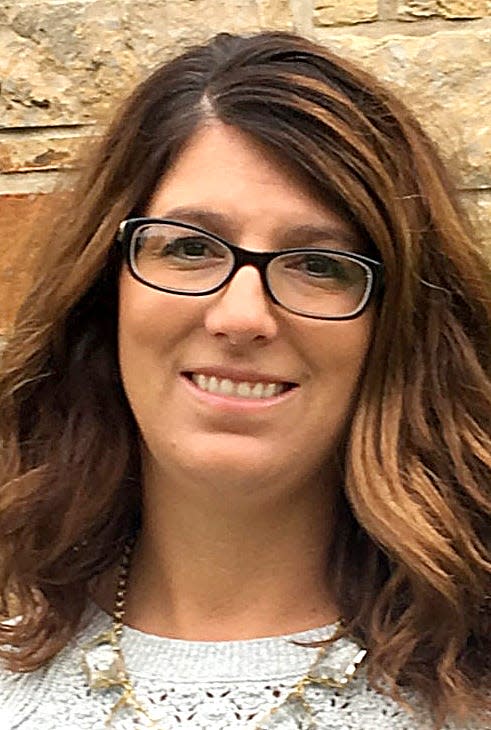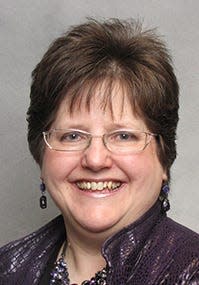University of Missouri nursing students learn to talk with patients about COVID vaccines
By building confidence among nursing students to talk with patients about COVID-19 vaccine hesitancy, the University of Missouri Sinclair School of Nursing hopes to build confidence in the vaccines.
A $70,000 grant from the American Association of Colleges of Nursing, funded by the Centers for Disease Control and Prevention, will make communicating with patients about COVID-19 part of Stefanie Birk's classes for undergraduate and graduate nursing students.
Birk is an assistant teaching professor in the MU Sinclair School of Nursing. The communication techniques will be included in Birk's Nursing in Communities course this semester and in future semesters.

About 63% of Boone County residents are fully vaccinated, with 74% receiving at least one dose of a vaccine, according to USA Today Network data.
The content would be delivered in a single class period, Birk said.
Students will learn motivational interviewing techniques to find out the motivations, goals and concerns individual patients have about the COVID-19 vaccine.
"It's used in many areas of nursing," Birk said.
There will be motivational interviewing practice days for students, she said.
Students will also learn about vaccine effectiveness, why some people hesitate to get the vaccine and how to differentiate factual, evidence-based vaccine information from misinformation about the COVID-19 vaccines, she said.
"The goal is to increase their confidence in having these conversations," Birk said.
Another result may be increased patient confidence in the vaccines, she said.
Nurses are in a good position to deliver the message, said Deidre Wipke-Tevis, assistant dean for research and PhD program director of the nursing school.
"The reason the CDC funded these grants is nurses have been listed as the most trusted profession, above doctors and lawyers," Wipke-Tevis said.

The future nurses at MU can help patients wade through the mass of information and disinformation to help them make an informed decision, Wipke-Tevis said.
"We know there's a lot of information out there about COVID and the COVID vaccines," Wipke-Tevis said. "That's part of what we're teaching. Nurses live in the communities. They have children in schools."
The Missouri School of Journalism is involved in helping identify credible sources of information, she said.
Both acknowledged there are some people determined not to get the COVID-19 vaccine who can't be persuaded no matter the information or who delivers it.
"We're preparing our students with the knowledge," Wipke-Tevis said. "We are prepared to reach people who are vaccine-hesitant from an evidence-based perspective with information from credible sources."
It's not necessarily a role nurses are accustomed to, Birk said.
"They're not comfortable having these conversations with patients," Birk said. "It's needed and it's meaningful work. The students are excited about it."
The grant will wrap up at the end of June, they said. Students will be asked to reflect about the project.
Roger McKinnney is the education reporter for the Tribune. You can reach him at rmckinney@columbiatribune.com or 573-815-1719. He's on Twitter at @rmckinney9.
This article originally appeared on Columbia Daily Tribune: MU nursing students learn to talk with patients about COVID vaccines
